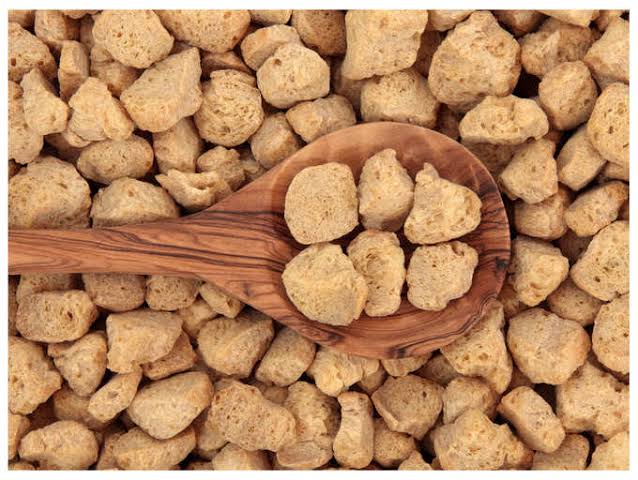High in protein and used as a vegetarian and lactose alternative for many foods, soya has transcended its Asian origins to become the most widely cultivated legume. The texture is so adaptable that soya beans are frequently processed into a variety of foods. Soya beans – also known as edamame beans when eaten fresh from the pod – are consumed as an alternative to meat. They are the basis of soya milk, soya flour,tofu, miso, soya chunks etc
The Nutrition Facts of Soybeans are:
- Calories: 173
- Protein: 16.6 grams
- Carbs: 9.9 grams
- Fiber: 6 grams
- Fat: 9 grams
- Saturated: 1.3 grams
- Monounsaturated: 1.98 grams
- Polyunsaturated: 5.06 grams
- Omega-3: 0.6 grams
- Omega-6: 4.47 g
Unlike most other plant-based proteins, Soy protein is a complete protein.
This means it contains all of the essential amino acids our body cannot make and needs to obtain from food. Hence among the best sources of plant-based protein. Soybeans contain antioxidants and phytonutrients that are linked to various health benefits. It is also a good source of several vitamins and minerals, including Vitamin K, folate, copper, manganese, phosphorus, and thiamine.
In some people, Soy products may suppress thyroid function, cause flatulence and diarrhea. Patients suffering from thyroid should eat soya products in moderation. Several studies suggest that soy may improve Cholesterol levels, especially “bad” LDL cholesterol.
Isoflavones are a class of phytoestrogens found naturally in soy that act like a weak estrogen in the body.Estrogen levels decrease during menopause, leading to symptoms like hot flashes. Since Soy acts as a natural estrogen, it may help reduce these symptoms.Studies confirm Soy’s beneficial role in menopause.
Recipe suggestions:
- Can add tofu in your diet along with stir fry vegetables
- Miso soup (Soyabean paste soup)
- Soya chunks sabji
- Soya paratha ( made with soya flour)
- Boiled edamame beans- great snack
